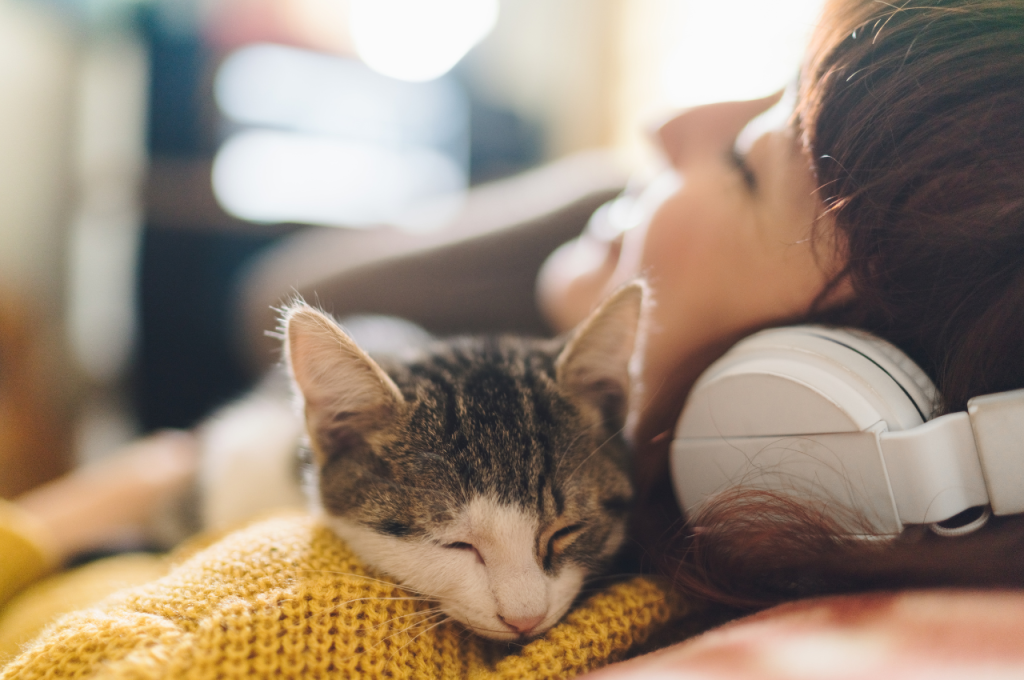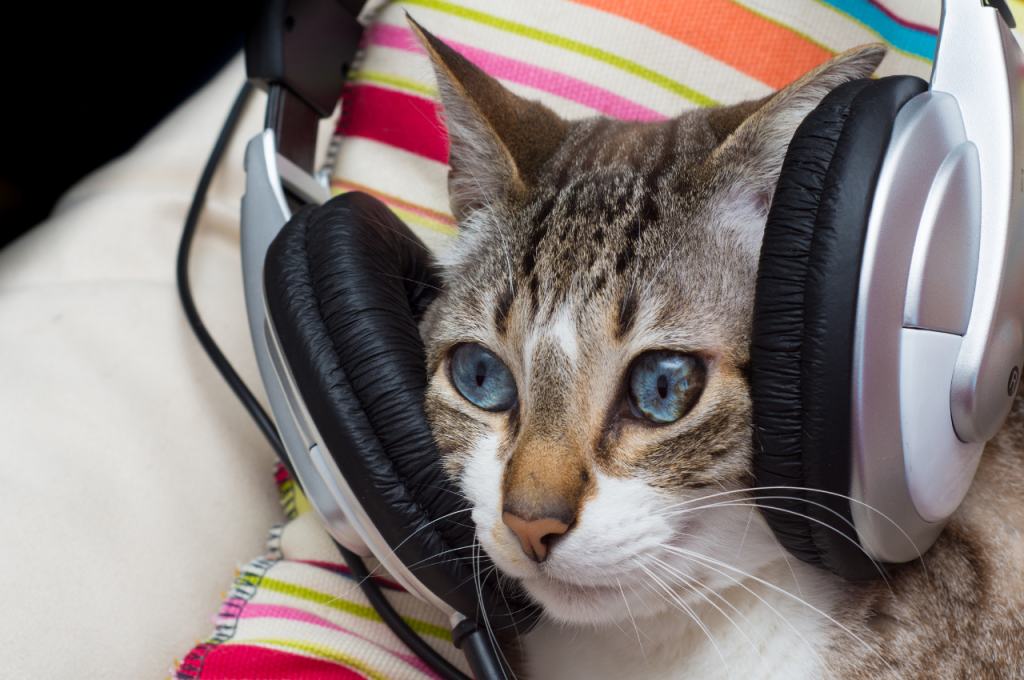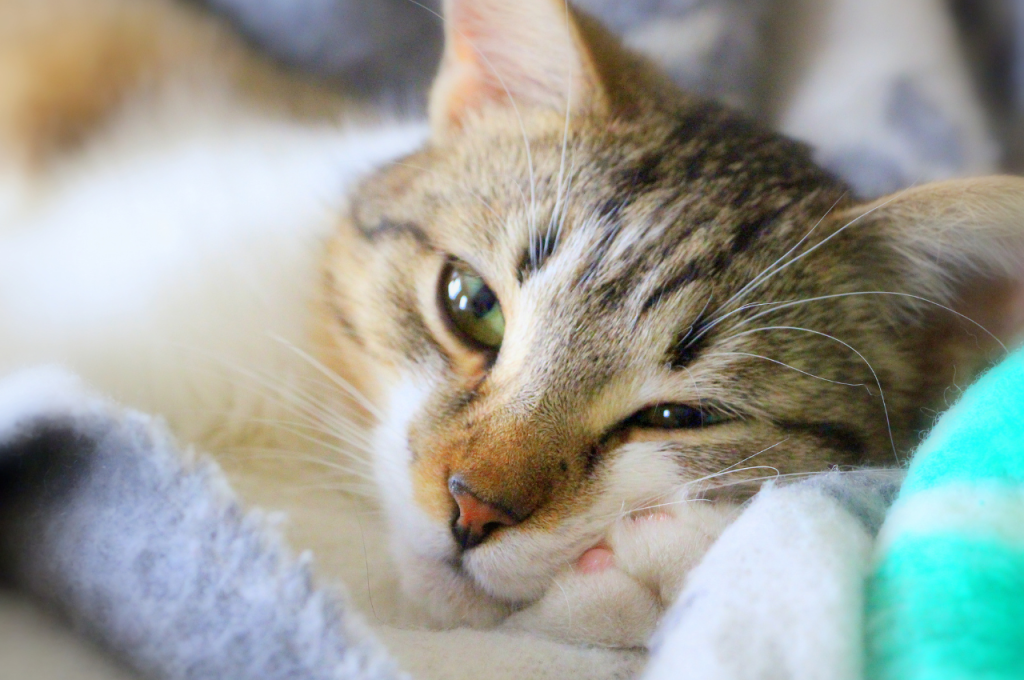Yes, some cats do enjoy music, and they can respond positively to certain types of music. Cats have a sophisticated sense of hearing and can enjoy calming and soothing sounds.
While not all cats may react the same way, music can have a positive impact on their behavior and mood. Cats’ reactions to music can vary based on their individual preferences and experiences. Some cats may even display relaxation, contentment, or playfulness when exposed to specific music genres.
Whether it’s classical, soft melodies, or nature sounds, playing music for your cat can provide a pleasurable sensory experience and contribute to a peaceful and harmonious atmosphere in your home. Understanding your cat’s unique response to music can help strengthen your bond and create a comfortable and enriching environment for your feline companion.
The Connection Between Cats and Music
Many cat owners have wondered whether their feline companions enjoy music. The connection between cats and music is an interesting topic that has intrigued pet owners and scientists alike. While some cats may appear indifferent to music, others seem to respond positively to certain types of sounds. Let’s look closely at cats’ responses to music and the scientific studies that have explored this fascinating relationship.

Cats’ Response to Music
Cats’ response to music can vary widely from one feline to another. Some cats may display signs of relaxation or contentment when exposed to calming music, while others may appear disinterested or even agitated. It’s believed that certain melodic patterns and rhythms can resonate with cats, evoking a response that mirrors human emotional reactions to music. Paying attention to your cat’s behavior while music is playing can help you discern their individual preferences. Observing their body language and overall demeanor can give you insight into whether they enjoy the music being played.
Scientific Studies on Cats and Music
In recent years, scientific researchers have conducted studies to further explore the connection between cats and music. These studies have sought to investigate whether cats’ behavior and physiological responses are influenced by different types of music. Some findings suggest that cats may exhibit more relaxed behavior and decreased stress levels in the presence of certain classical music compositions. While more research is needed to fully understand how and why cats respond to music, these studies provide valuable insights into the potential impact of music on feline companions. As our understanding of cats’ relationship with music continues to evolve, it’s clear that this unique bond warrants further exploration.
Music Preferences of Cats
Do cats enjoy listening to music? This age-old question has puzzled pet owners for years. Cats are known for their unique behaviors, and their stance on music is no exception. Understanding the musical preferences of cats can provide insight into their behavior and may even help create a more soothing environment for your feline friend.
Genres of Music Cats Prefer
Cats tend to gravitate towards music that has a slow tempo and soothing melodies. Soft classical music, such as Chopin or Bach, is often preferred by cats due to its calming effect. Additionally, ambient sounds or nature-inspired music can also be appealing to cats as it mimics the sounds they would hear in their natural environment. On the other hand, loud or fast-paced music, such as heavy metal or techno, can be stressful for cats and may cause them to become agitated.
Factors Influencing Cats’ Musical Taste
- Personality: Just like humans, cats have unique personalities that influence their musical preferences. Some cats may enjoy the sound of a piano, while others may prefer the gentle strumming of a guitar.
- Exposure: The environment in which a cat is raised can also impact its musical taste. Cats that are accustomed to hearing music from a young age may be more receptive to different genres.
- Stress levels: Cats experiencing high levels of stress may find comfort in calming music, while overly rambunctious cats may prefer silence.
- Frequency: Regular exposure to a particular type of music can influence a cat’s preferences over time, making it more likely to enjoy those specific sounds.
The Impact of Music on Cats’ Behavior
Cats have a unique relationship with music, and various studies suggest that music can influence cats’ behavior. Let’s delve into the impact of music on cats’ behavior by exploring how music affects their mood and stress levels.
Effects of Music on Cats’ Mood
- Classical music can soothe cats and create a calming environment.
- Upbeat music may energize cats and make them more playful.
- Each cat may have a unique preference for certain genres or tunes.
Influence of Music on Cats’ Stress Levels
- Soft melodies can reduce cats’ stress levels in unfamiliar situations.
- Heavy, loud music may agitate cats and increase their anxiety.
- Music with a slow tempo can promote relaxation and comfort in cats.
Creating A Harmonious Environment for Cats
Creating a harmonious environment is essential for the well-being of our feline friends. As cat owners, we strive to provide them with everything they need to feel safe, comfortable, and content. While we may focus on their physical needs such as food, water, and shelter, it’s important not to overlook their emotional needs. Music therapy can play a significant role in creating a positive atmosphere for cats.
Music Therapy for Cats
Believe it or not, cats can enjoy listening to music just like humans do. Studies have shown that certain types of music can have a calming effect on cats, helping to reduce stress and anxiety. The key is to find the right kind of music that resonates with their sensitive ears and has a soothing impact on their nervous system.

- Classical Music: Classical compositions, known for their melodic flow and gentle rhythms, are often a great choice for feline relaxation. The harmonious nature of this genre can create a peaceful environment, promoting a sense of tranquility for your cat.
- Nature Sounds: The sounds of nature, such as soft rain or chirping birds, can mimic the tranquil soundscape cats are naturally accustomed to. This type of music can help cats feel more connected to their innate environment.
- Cat-Specific Music: Yes, there is even music specifically composed for cats. These specialized compositions incorporate frequencies and tones that are tailored to cats’ hearing range. This unique music aims to stimulate positive emotional responses and engage their playful nature.
Tips for Playing Music to Enhance A Cat’s Well-being
Playing music for your cat is not as simple as turning on your favorite playlist. Consider the following tips to ensure that the music you choose provides a harmonious experience for your feline companion:
- Volume and Tempo: Keep the volume low and the tempo slow. Loud or fast-paced music can be overwhelming for cats, leading to stress and agitation. To create a calming environment, opt for soft, gentle music.
- Location: Choose an area where your cat feels most comfortable. It could be their favorite spot to relax or a cozy corner in your home. Create a musical oasis that makes your cat feel safe and secure.
- Observation: Pay attention to how your cat responds to different types of music. Observe their behavior to determine which genres or compositions they seem to enjoy the most. This will help you tailor the music selection to their preferences.
- Play During Alone Time: Playing soothing music when your cat is home alone can help alleviate separation anxiety and provide a sense of companionship. Consider leaving a radio or a dedicated music player on for a few hours.
By incorporating music therapy into your cat’s daily life, you can create a harmonious environment that promotes their overall well-being. Remember to always keep their preferences and comfort in mind when choosing music, and enjoy the peaceful ambiance it creates for both you and your feline friend.
Interactive Music and Bonding with Cats
Discover the intriguing connection between interactive music and bonding with cats. Uncover whether cats truly enjoy music and how it can enhance their well-being and your bond with them. Explore the harmony between feline companionship and musical stimulation uniquely.
Engaging in musical activities with cats can be a delightful way to bond with your feline friend. While it is well known that cats have a keen sense of hearing, many cat owners wonder if they enjoy listening to music. Through interactive music sessions, you can not only entertain your cat but also strengthen your bond and create a harmonious environment at home.
Engaging in Musical Activities with Cats
When engaging in musical activities with cats, it is important to choose music that is soothing and cat-friendly. Classical and calming music, such as classical piano or instrumental pieces, are often well-received by cats. Avoid playing music with loud, jarring sounds or high-pitched frequencies, as they may startle or irritate your furry companion.
Creating a musical playlist specifically curated for your cat can be a great way to provide an enriching and relaxing experience. Opt for songs with smooth melodies and gentle rhythms. Experiment with different genres to see which ones your cat responds to most positively. Observing their behavior during each session can give you a better understanding of their musical preferences.
It’s important to create a calm and inviting environment during music sessions. Find a quiet space where you and your cat can both relax. Dimming the lights and creating a cozy atmosphere can enhance the experience. To make the session more interactive, you can use toys or treats to engage your cat and encourage them to participate in the musical experience.
Building A Musical Connection With Your Feline Friend
Building a musical connection with your cat involves more than just playing music. It is a process that requires time, patience, and attentive observation. As you engage in musical activities with your cat, be mindful of their body language and reactions. Look out for signs of enjoyment, such as purring, relaxed body posture, or kneading.
Music can also be used as a tool to calm anxious or stressed cats. If you notice that your cat is feeling agitated or anxious, try playing soft music to create a relaxing atmosphere. Over time, your cat may associate the music with a sense of comfort and security, helping them to feel more at ease in their surroundings.
Remember, every cat is unique, and their response to music may vary. Some cats may be more responsive and show a genuine interest, while others may simply enjoy your presence and the shared bonding time. The key is to be patient and observe what works best for your cat.
Cats and Musical Instruments
Cats and musical instruments have a curious relationship that often fascinates both pet owners and musicians alike. Here are some common scenarios where cats interact with musical instruments:
Cats’ Reactions to Musical Instruments
Cats react differently to various musical instruments based on their sound and vibrations.
The soft sounds of a piano may soothe a cat, while the loud strumming of a guitar could startle them.
Incorporating Musical Instruments in Cat Enrichment
Integrating musical instruments into cat enrichment activities can stimulate their senses and keep them engaged.
Cats may respond with curiosity to the subtle tones of a flute or the gentle tapping of drums.
Music and Cat Adoption Centers
When it comes to creating a welcoming and stress-free environment for cats at adoption centers, music plays a vital role. The soothing sounds and rhythms of music have been found to have a positive impact on the well-being of cats, helping them to relax and adapt to their new surroundings more easily.
Role of Music in Cat Shelters
At cat adoption centers, the role of music extends beyond mere background noise. The calming effect of music has been shown to reduce stress and anxiety levels in cats, creating a more comfortable and peaceful atmosphere for both the felines and potential adopters. Additionally, shelters often play classical music, which has been found to have a particularly soothing effect on cats, promoting a sense of tranquility and relaxation.
Using Music to Help Cats Adapt in New Environments
Music is utilized as a tool to help cats acclimate to their new surroundings, especially during the initial adjustment period. By incorporating calming music into the environment, cats are better equipped to cope with the unfamiliar sights, sounds, and scents of the shelter, thus facilitating an easier transition into their temporary homes.
The Future of Music for Cats
Cats have a profound impact on our lives, and one area that is gaining increasing attention is their relationship with music. It’s no secret that both humans and animals are affected by tunes, but do cats enjoy music? This simple question has spurred a wave of research into feline musical preferences, giving birth to an entirely new field – the creation of music specifically for cats. Let’s delve into the future of a perfect musical experience for our feline friends.
Advancements in Feline Music Research
Recent years have witnessed a surge in studies exploring the effects of music on cats. Researchers have been conducting extensive experiments to uncover what types of sounds and melodies resonate with our feline companions. The findings have shed light on the potential for music to influence a cat’s behavior and mood, paving the way for a deeper understanding of their musical preferences.
Scientists have analyzed feline reactions to various musical genres, rhythms, and frequencies. They have observed how cats respond to different compositions, leading to breakthroughs in identifying the specific elements that appeal to them. These advancements are shaping the development of music tailored to enrich the lives of our beloved pets.
Innovations in Cat-centric Music Creation
Cat-centric music creation has emerged as a promising frontier, with composers and musicians devising original compositions aimed at captivating feline ears. Employing the knowledge gained from research, these innovators are incorporating elements that resonate with cats, striving to curate a musical experience tailored to their unique auditory perceptions.

Through the utilization of specialized instruments and sound patterns, these musicians are creating harmonies and melodies designed to soothe, enrich, and entertain our furry companions. The continued collaboration between music professionals and experts in animal behavior is fueling the development of music that is not only enjoyable for cats but also beneficial for their well-being.
Conclusion
In sum, while cats vary in music preferences, some may enjoy certain tunes. Keep experimenting with music to see your cat’s reaction.
Remember, creating a soothing environment is key for your feline friend’s well-being. Stay observant and find the melodies that bring joy to your furry companion.
